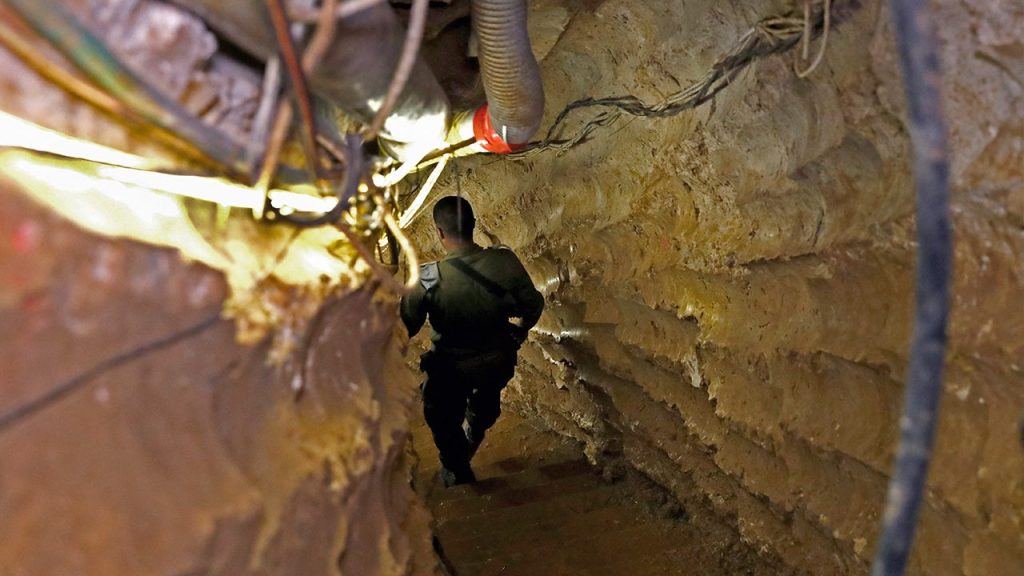Security experts are warning that Israel’s greatest threat lies to the north in Lebanon, where Hezbollah has developed a sophisticated tunnel system stretching over 100 miles throughout southern Lebanon. These tunnels have played a significant role in arming Hezbollah and have come to light during Israel’s war with Hamas in Gaza. While roughly 80% of Hamas’ tunnels have been eradicated, Hezbollah’s tunnels remain largely untouched and are believed to be far more sophisticated and larger. The tunnels were developed in close coordination between Iran and North Korea, with Iran drawing inspiration from North Korea’s military tunneling experience.
Hezbollah’s tunnels include offensive tunnels intended for operational use and infrastructure tunnels forming an underground network near southern Lebanese villages to establish defense lines against Israeli invasion. The tunnels are equipped with underground command and control rooms, weapons depots, field clinics, and designated shafts for firing various types of missiles. Some tunnels can transport small vehicles like ATVs and motorcycles, and they connect Beirut to southern Lebanon. The Lebanese government has not opposed Hezbollah’s tunnel construction, as the terrorist organization maintains secrecy by expropriating territories and preventing civilians from entering certain areas.
Hezbollah’s cooperation with Iran and North Korea has made it a significant threat to Israel. The terrorist group is believed to have as many as 50,000 members and significant influence in Lebanon’s security apparatus. Due to Hezbollah’s power within Lebanon and lack of opposition from the government, security experts like former IDF Major Gen. Yaakov Amidror believe that Israel needs to take proactive measures against the organization. Initiating a war against Hezbollah would be challenging and devastating, as the group hides missiles in populated areas, making casualties unavoidable.
Hezbollah’s growing power within Lebanon has placed it at the top of the list of Israeli security threats, surpassing the threat from Hamas in Gaza. The complexity of fighting organizations like Hezbollah, which operate from within civilian populations and target civilians, poses significant challenges for Israel. The demographics within Lebanon have shifted over the years, with a majority Muslim population that has led to increased Hezbollah influence within the army and security apparatus. Hezbollah’s extensive tunnel network, built with the support of Iran and North Korea, poses a major threat to Israeli security, and experts warn that taking action against Hezbollah would be perceived as cooperation with Israel and treason in Lebanon.
Amidror believes that initiating a war against Hezbollah is necessary, although it would be a devastating conflict with significant casualties on both sides. The timing of such an operation is crucial, with the challenge of fighting an organization that operates from within civilian populations. Despite the difficulties involved in countering Hezbollah, security experts emphasize the importance of taking proactive measures to address the threat posed by the terrorist organization’s sophisticated tunnel network and growing influence within Lebanon.


